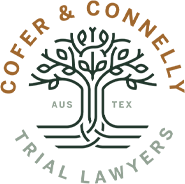Austin Human Trafficking Attorneys
Arrested for Trafficking of Persons in Texas?
Trafficking of persons involves forcing, deceiving, or coercing someone into labor or sexual acts. In Austin, being convicted of this crime has severe consequences, including a long prison sentence and a criminal record that can haunt you for life. If you're facing these charges, it's essential to learn about what the offense entails, including potential penalties, defenses available in these types of cases, and how a human trafficking lawyer in Austin can fight the charges while protecting your rights.
Get in touch with our experienced team of defense attorneys by calling (512) 991-0576 to schedule a free consultation with Cofer & Connelly, PLLC.
Why Choose Our Defense Lawyers?
The team of criminal defense attorneys at Cofer & Connelly, PLLC have more than 200 years of combined experience in criminal law, including service as felony prosecutors, judges, and defense lawyers. Since 2020, we have achieved a 94% success rate of all criminal cases! Our unparalleled service has earned many local and national distinctions, including being named “Best Lawyer” by the Austin Chronicle three years running and having six of our attorneys listed as Rising Stars in the Texas Super Lawyers list.
What Is a Trafficking of Persons Charge?
According to Texas Penal Code Section 20A.02, if you transport, recruit, entice, provide, harbor, or otherwise obtain another person by any means, you could be charged with trafficking.
If you knowingly traffic someone with the intent that they engage in forced labor or services, it's trafficking. Forced labor means making someone work against their will, without sexual activity involved. Another part of trafficking is if you receive any benefit from being part of a venture that involves forced labor. Even if you're not the main person doing the trafficking, if you're involved and benefit from it, you're still part of the crime.
Trafficking also includes causing someone, through force, fraud, or coercion, to engage in illegal sexual activities. These activities include prostitution, continuous sexual abuse of a young child, sexual assault, sexual performance by a child, indecency with a child, and child pornography.
Continuous Trafficking of Persons
Continuous trafficking of persons, under Texas Penal Code Section 20A.03, is where you have been involved in trafficking activities multiple times. Specifically, for a prosecutor to prove someone guilty of this crime, they must show that the accused person knowingly engaged in trafficking activities, not just once, but at least twice over a period of at least 30 days.
It’s also worth noting that in a trial, jurors don’t have to agree on every detail of each trafficking act or the exact dates they happened. What they must agree on unanimously is that the accused person committed trafficking offenses within a period of 30 days or more. This means the focus is on the pattern of behavior over time, rather than each individual act.
What Are the Penalties for Trafficking of Persons?
The penalties for trafficking of persons in Texas depend on the specifics of the crime. Generally, human trafficking is charged as a felony, but the degree of felony and the penalties may change based on certain conditions.
For example, forcing another person into labor or sexual activities is usually charged as a second-degree felony which is punishable by up to 20 years in prison and up to a $10,000 fine. However, if the trafficked person is a child or disabled person, the offense automatically upgrades to a first-degree felony which is punishable by 25 years to life in prison.
The severity also increases if the trafficking results in serious injury, death, or the use of a deadly weapon. The penalties can also increase if the trafficking involved impeding someone's breathing or circulation during the crime, or if the victim was recruited from a shelter or facility for vulnerable individuals, or the trafficking happens near a school, child-care facility, or during certain youth-related events.
What Are the Penalties for Continuous Trafficking of Persons?
Continuous trafficking of persons in Texas is classified as a felony of the first degree. If convicted, a person faces a lengthy time in prison. The minimum prison time is 25 years, and it could go up to 99 years or even a life sentence.
Collateral Consequences of a Trafficking of Persons Conviction
Being convicted of trafficking of persons in Texas can affect your life in many ways beyond jail time. You could lose certain rights, like voting or owning a gun. It can also be harder to find a job, get housing, or go to college, because many places ask about criminal records – and this type of offense is viewed quite harshly. Additionally, your relationships and reputation could be negatively impacted. These long-term effects are important to consider and can make life challenging after your sentence is over.
Potential Defenses in Trafficking of Persons Cases
If you're facing charges under Texas Penal Code Section 20A.02 for trafficking of persons, understanding your potential defenses is key, such as:
- Lack of Knowledge: One common defense is the lack of knowledge. This means you didn't know the actions in question were happening. It's not enough to just be at the wrong place at the wrong time; the law requires that the defendant knew what was going on.
- Consent of the Victim: Another defense could be consent. If the alleged victim said they were willing to do the work or service, and there's proof they agreed to it without being forced or tricked, this can be a strong defense. However, remember that consent from children or disabled individuals in these situations isn't legally valid.
- Mistaken Identity: Mistaken identity is also a defense. This occurs when you're wrongly identified as the person who committed the crime. With technology and witnesses sometimes making errors, this defense is more common than you might think.
- Coercion: If someone forced or threatened you to commit the act, this can be a key point in your defense. Your attorney can show that you didn't have a real choice due to fear or pressure from others.
In continuous trafficking cases, one key defense is a lack of continuous conduct. Continuous trafficking requires the crime to have occurred several times over at least 30 days. If you can show that the events didn't happen this way, it can be a strong defense against the charge of continuous trafficking.

Our Impact
The Experience and Proven Track Record Your Case Needs
-
200+ Years' Combined Experience
-
95% of Cases Dismissed, Acquitted, or Reduced
-
Thousands of Cases Handled
-
Award-Winning Legal Representation
-
Voted Best Lawyer Five Years in a Row by the Austin Chronicle
-
Former Felony Prosecutors and Judge Defending You

At Cofer & Connelly, we believe every client deserves more—more experience, more strategy, and more commitment. With former prosecutors, award-winning attorneys, and over 200 years of combined experience, we anticipate challenges and fight for the best outcome. When the stakes are high, we don’t settle—we do more.












